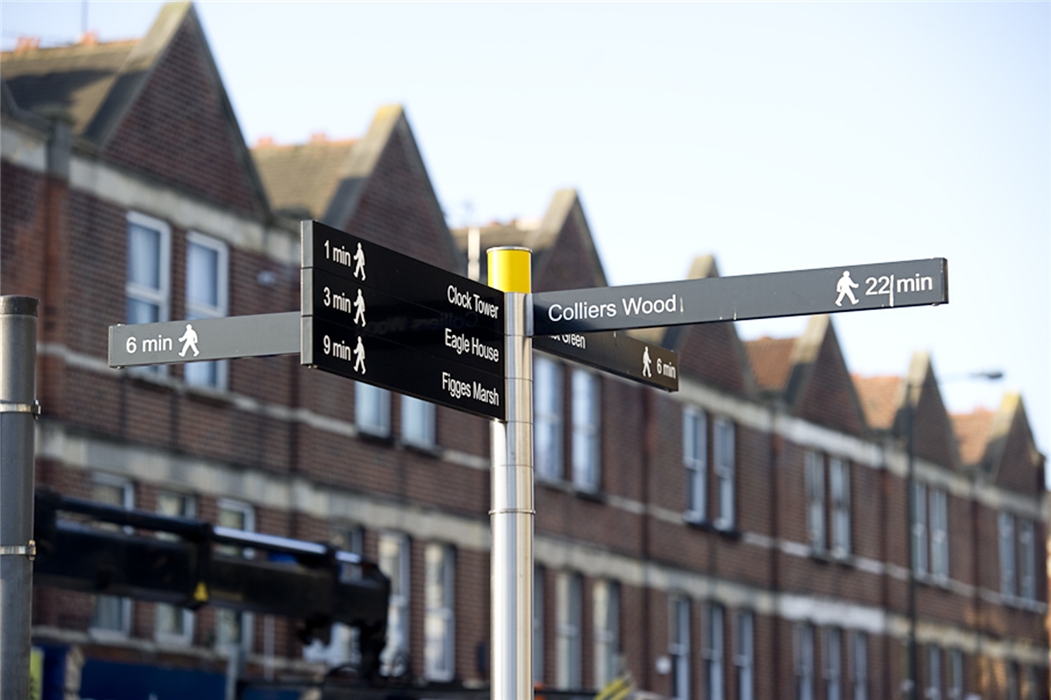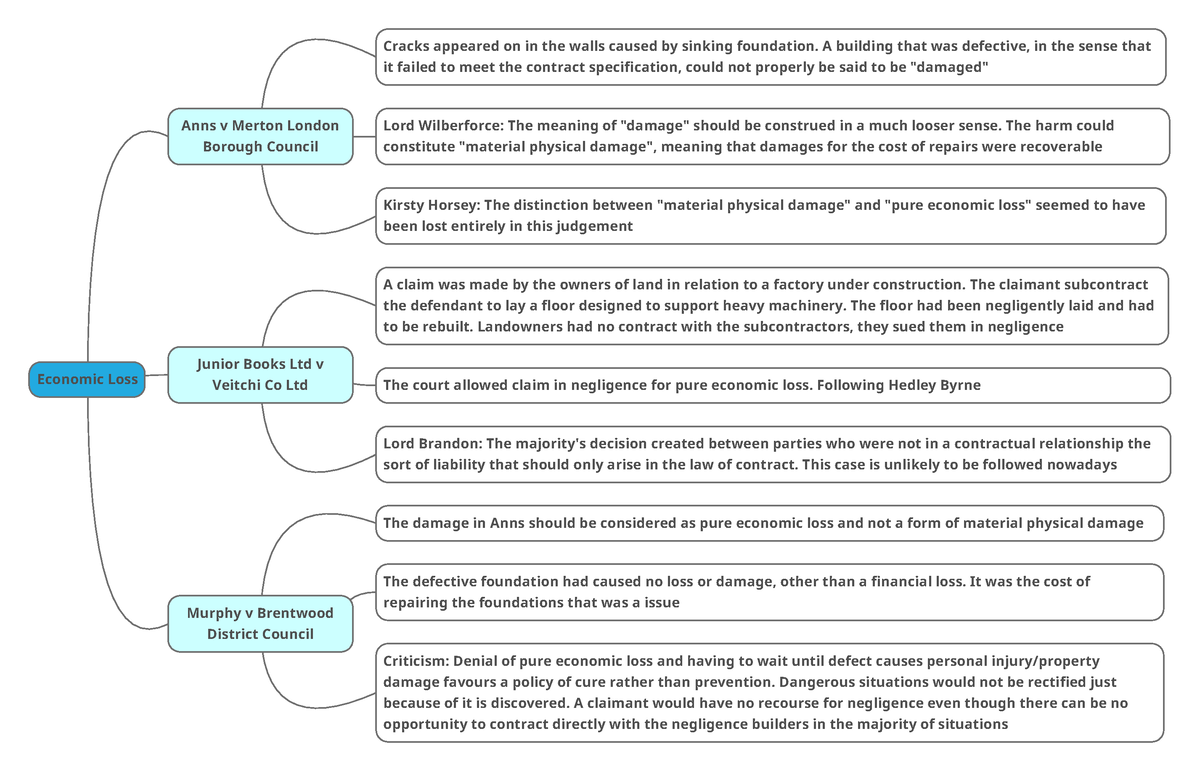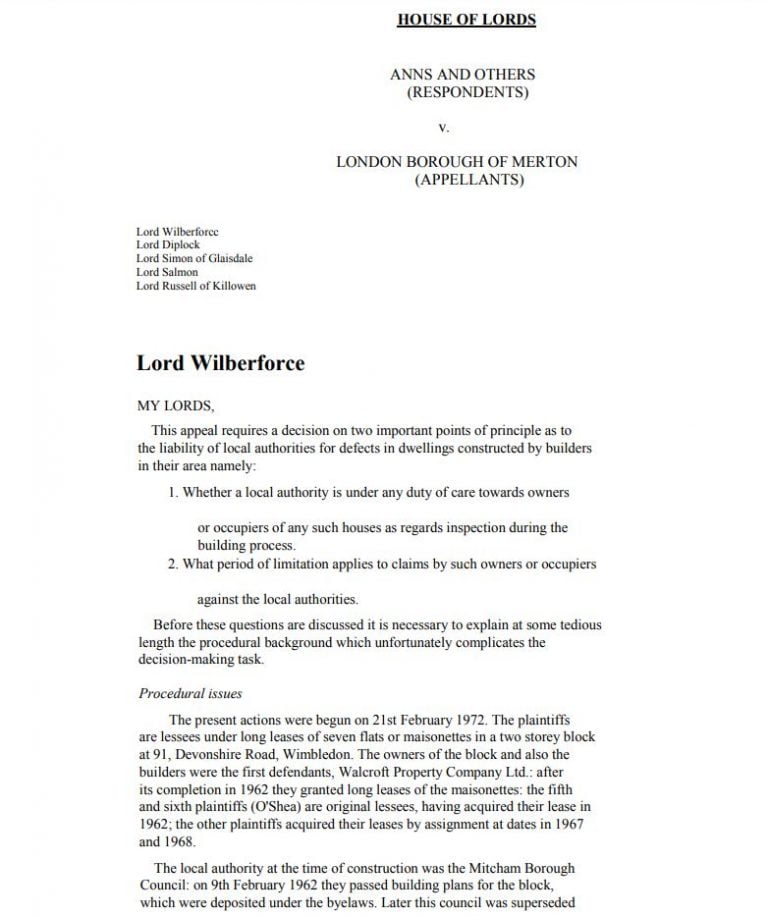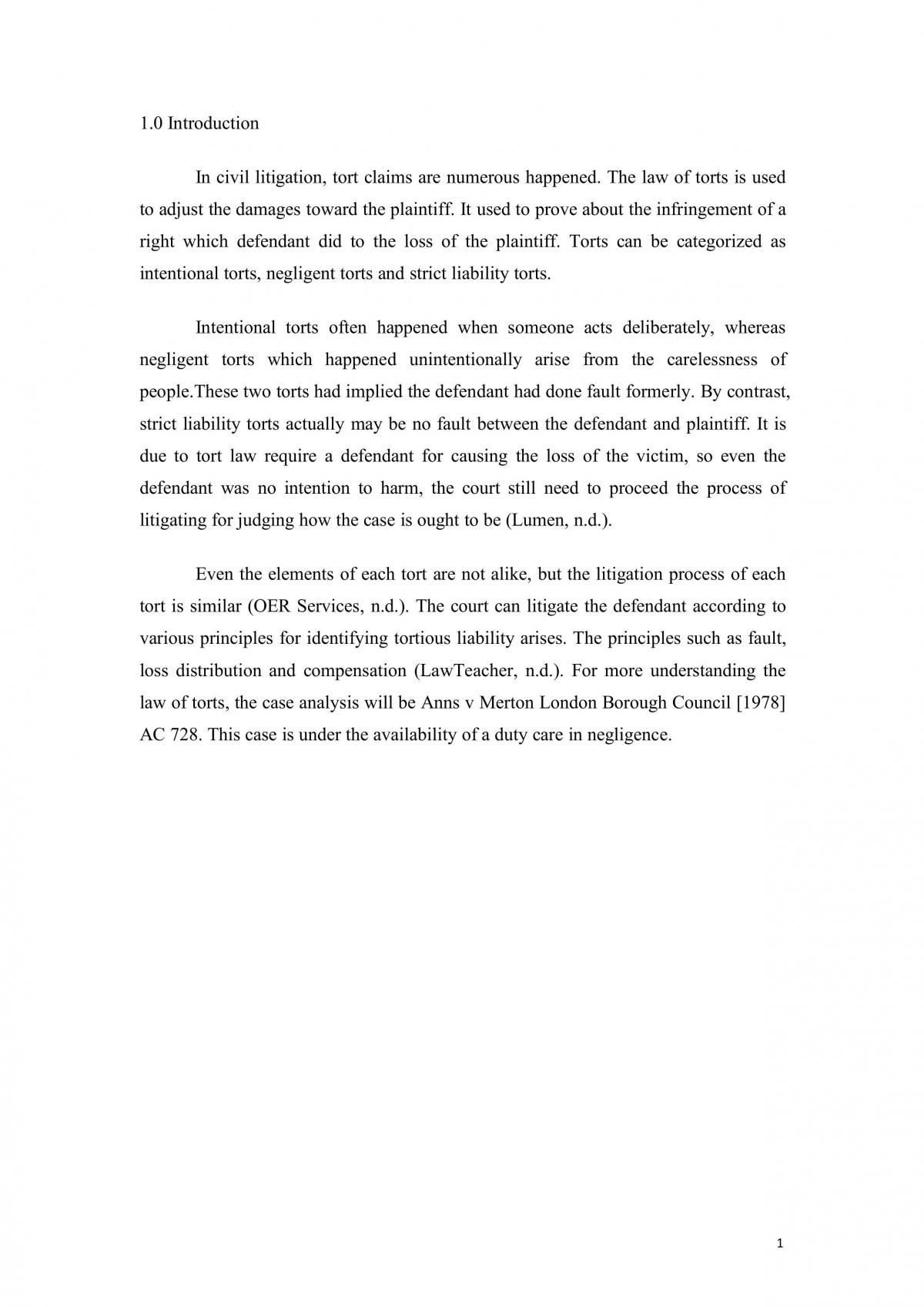Anns v Merton London Borough Council [1978] AC 728 Explain the facts of the case and judgment

Borough of Merton Case Study for Via Sign System
After a decade of adventure, Anns v. Merton Borough Council has been killed off. The case that seemed to many to be the most important statement of the law of negligence in England since Donoghue v. Stevenson has been finally done to death by a specially augmented House of Lords in Murphy v. Brentwood District Council?

Anns v Merton cASE ICLR Appeal Cases/1978/ANNS AND OTHERS RESPONDENTS AND MERTON LONDON
The legal issue in Anns v Merton London Borough Council centred on the duty of care owed by a local authority in its role as a building inspector. Anns v Merton questioned whether the local authority was liable for either failing to inspect or negligently inspecting the foundations of a building block, resulting in structural damage.

Merton Council UK.. 2020 02 07 YouTube
Anns v Merton London Borough Council. Facts. In 1962 the local council of Merton approved building plans for the erection of a block of maisonettes. The approved plans showed the base wall and concrete foundations of the block to be 'three feet or deeper to the approval of local authority [being Merton]'. The notice of approval said that the bylaws of the council required that notice.

Anns v Merton London Borough Council [1978] AC 728 About LexisNexis Privacy Policy Terms
Anns v Merton LBC [1978] AC 728 by Lawprof Team In shop: First-class Oxford tort law notes Law has never been this simple Key points Negligence carried a prima facie duty of care Defective property is a form of physical damage to property that is actionable in negligence - note that this was later rejected, see Murphy v Brentwood DC [1991] 1 AC 398

Anns v. Merton London Borough Council House of Lords before Lords Wilberforce; Diplock; Simon
Merton London Borough Council, 1 Lord Wilberforce, in considering the negligence liability of a local authority arising out of the exercise of its statutory powers to inspect buildings under construction, drew a distinction between the "policy" and "operational" aspects of the authority's functions and suggested that liability would more readily.

Economic loss 2 Mind map Economic Loss Anns v Merton London Borough Council Cracks appeared
Anns v Merton London Borough Council [1977] UKHL 4, [1978] AC 728 was a decision of the House of Lords. It established a broad test for determining the existence of a duty of care in the tort of negligence called the Anns test or sometimes the two-stage test for true third-party negligence. This case was overruled by Murphy v Brentwood DC [1991].

Anns V Merton London Borough Council PDF Negligence Duty Of Care
Anns v Merton London Borough Council 326 words (1 pages) Case Summary 28th Sep 2021 Case Summary Reference this In-house law team Jurisdiction / Tag (s): UK Law Share this: LinkedIn Legal Case Summary Anns v Merton London Borough Council [1978] AC 728 The availability of a duty of care in negligence Facts

Lecture 2.3 Anns Test Anns Test Anns Test Anns v Merton London Borough Council [1978] Lord
A. Anns v. Merton London Borough (H.(E.)) been held to be under a positive duty to exercise those powers in such a way as to safeguard them from a harm which was different from the public purpose which the Act was designed to avoid, namely, injury to health. There are three exceptional features: It imposes a positive duty to act so as to avoid.

Case Analysis Anns v Merton London Borough Council [1978] AC 728 DBM4063 Business Law
Anns v Merton London Borough Council [1978] AC 728 House of Lords The claimants were tenants in a block of flats. The flats suffered from structural defects due to inadequate foundations which were 2ft 6in deep instead of 3ft deep as required. The defendant Council was responsible for inspecting the foundations during the construction of the flats.

Anns v Merton London Borough Council [1978] Case Analysis Negligence Solicitors
Anns v Merton London Borough Council [1977] UKHL 4, [1978] AC 728 is a landmark case in English tort law that established a broad test for determining the existence of a duty of care in the tort of negligence called the Anns test (also known as a two-stage test) for true third-party negligence. In the case, the plaintiff, Mrs Anns, owned a.

Anns v Merton London Borough Council [1978] AC 728 Explain the facts of the case and judgment
A duty of care is established using a two stage test. 1) There must be a relationship of proximity between the claimant and defendant, such that the harm caused by the defendant's action was reasonably foreseeable. 2) There must be no policy consideration which restrict or extinguish the duty. This test was later overruled by Caparo's three.

Case Analysis Anns v Merton London Borough Council [1978] AC 728 DBM4063 Business Law
Anns v Merton London Borough Council [1977] UKHL 4, [1978] AC 728 was a decision of the House of Lords that established a broad test for determining the existence of a duty of care in the tort of negligence, called the Anns test or sometimes the two-stage test for true third-party negligence. The case was overruled by Murphy v Brentwood DC [1991].

Institute of Licensing
Michael G Bridge, 1978 24-2 McGill Law Journal 277, 1978 CanLIIDocs 125

Anns V Merton London Borough Council PDF Common Law Justice
Anns v Merton London Borough Council [1978] AC 728 House of Lords The claimants were tenants in a block of flats. The flats suffered from structural defects due to inadequate foundations which were 2ft 6in deep instead of 3ft deep as required. The defendant Council was responsible for inspecting the foundations during the construction of the flats.

Arts funding in Merton London Councils
Anns v Merton London Borough Council Date [1977]; [1978] Citation AC 728; 2 5, All ER 492WLR 1024, 75 LGR 55 Legislation Building Act 1984 Keywords

London Borough of Merton Map Size 118.9 x 84.1 cm Amazon.co.uk Office Products
Anns v Merton London Borough Council Smart Summary (Beta) Facts In February 1970, structural movements began to occur in dwellings constructed by builders in the area of the defendant council.